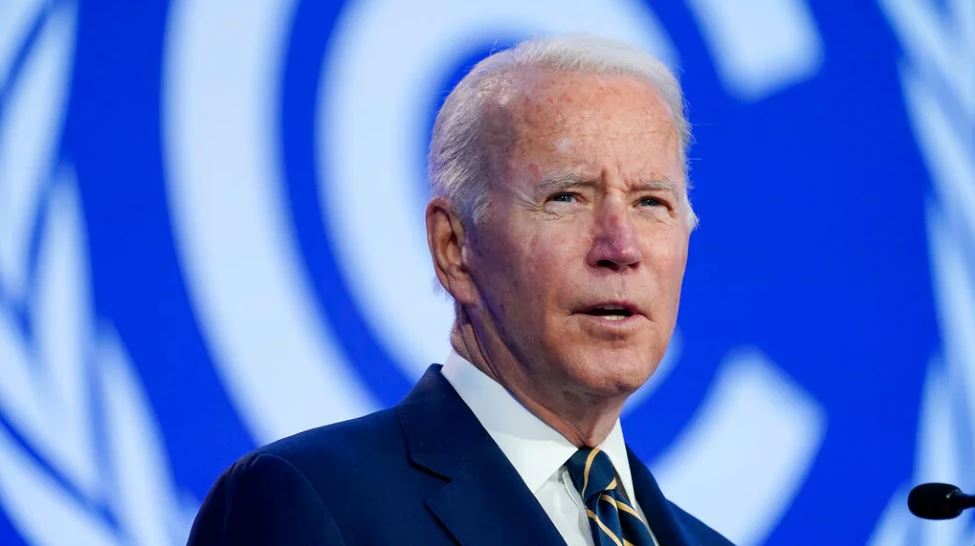On his second overseas trip since taking office, President Biden sought to reestablish America’s capacity to lead the world in combating climate change before it was too late. However, he also wanted to reaffirm Joe Biden’s authority.
Mr. Biden adopted the persona of a travelling salesman from the moment he touched down in Rome on Friday for the Group of 20 meeting and then travelled to Glasgow for the climate summit. He revelled in the backslapping, personalised politics that he believes distinguishes him as a strong negotiator and can translate into substantive agreements.
As he returned to Washington on Tuesday night, Mr. Biden was able to point to a number of victories, including a new global minimum tax for corporations, as well as international climate agreements to reduce methane emissions — which he called “the foundational commitment” of his administration — and deforestation. However, if such transactions were important, they were mostly completed prior to his travel.
While in Glasgow, Mr. Biden was confronted with a lack of global consensus on how to move forward, and his climate change agenda was hanging in the balance in the United States Congress. His time in Glasgow exposed the reality that the personal style that he prefers has not yet assisted him in closing the gap between his ambition and what he has been able to achieve. “It was a great honour to be there,” Mr. Biden said.
China and Russia, two of the world’s greatest emitters of greenhouse gases, sent negotiation teams to the Conference on Climate Change (COP) in Glasgow, but not their respective presidents. Xi Jinping, the president of China, delivered just a written message, in which he pledged that his nation “would continue to prioritise ecological protection while pursuing a green and low-carbon route to economic growth.”
President Barack Obama’s successor, Joe Biden, delivered a farewell press conference in which he sought to emphasise American leadership once again, saying that China’s failure to attend the meeting was a “huge mistake.” According to Mr. Biden, “they’ve lost their capacity to exert influence on people all across the globe, including folks here at COP.”
His comments suggested that he was willing to play a long game when it came to persuading China to come to the negotiating table: He stated that he and Mr. Xi had at least a nascent relationship from his time as president, and that they’ve spoken on the phone for “at least five or six hours” since the beginning of the year.
Mr. Biden’s goal was to use the absence of Mr. Xi and another adversary, Russian President Vladimir V. Putin, as a chance to demonstrate that the world’s democracies are capable of delivering results on their promises. His national security adviser, Jake Sullivan, attempted to increase pressure on China earlier in the trip, telling reporters on board Air Force One on way to Glasgow that China had “an duty to step up to greater ambition” as the United States moved ahead.
Taking part in the conference, which will run through Nov. 12, Mr. Biden will be leaving behind a group headed by John Kerry, who, as secretary of state, was instrumental in securing the Paris climate deal in 2015 and now serves as the Obama administration’s climate envoy. The Secretary of State, John Kerry, stated on Tuesday that he expected new financial commitments to fulfil a long-delayed promise to provide $100 billion a year in aid for developing countries to fight and adapt to global warming, though it was unclear whether every country would follow through on its commitments.
Mr. Biden, who faces dismal approval ratings at home, appeared confident throughout the trip that the measured approach he took abroad would ultimately result in the passage of two key bills that await him when he returns to Washington: a $1.85 trillion social safety net measure that includes provisions for clean energy, and a $1 trillion infrastructure package.
The Democratic infighting in Congress has put a halt to the progress that President Biden had wanted to see. In part because Senator Joe Manchin III, Democrat of West Virginia and one of the party’s two holdouts on the spending package, said that he would not vote on the package until he had more information on the proposal, the climate-focused bill has been reduced from its most broad form.

